Introduction
There’s something powerful about the way craft works in Africa. It’s not just about beautiful fabrics or handmade baskets, it’s about people, their stories, and their survival. Behind every hand-stitched seam, there’s a woman earning her first stable income, a community centre filled with apprentices, or a traditional skill being passed to a new generation. Across the continent, African-owned brands are proving that creativity can be a form of community building. They’re using design, fashion, and craftsmanship not just to make things, but to make change, by training young people, creating dignified jobs, and keeping ancient techniques alive in a modern world.
This is the new blueprint for African business, where profit and purpose aren't enemies trying to coexist, but partners amplifying each other. In the spirit of that, these 10 brands are proving you can create beautiful products, pay fair wages, preserve heritage, educate the next generation, and build a strong business, all at the same time.
Alaffia

Founded by Togolese entrepreneur Olowo-n'djo Tchala, this beauty and skincare company makes products from shea butter and coconut oil using traditional West African methods. Alaffia has grown into a major source of employment in Togo, supporting thousands of natural resource producers and touching the lives of countless people through its foundation. They’ve helped students get to school by sending bikes their way, supported safe births for mothers, built schools that anchor whole communities, and planted huge stretches of new trees each year.
Their model is simple; traditional knowledge + fair compensation = sustainable empowerment. They're not "saving" anyone; they're simply recognising that West African women have valuable skills and paying them fairly for it. And everything else that they’re committed to, from the schools, healthcare, the environmental work, and their programs to end female genital mutilation all flow from that core theme.
Indego Africa
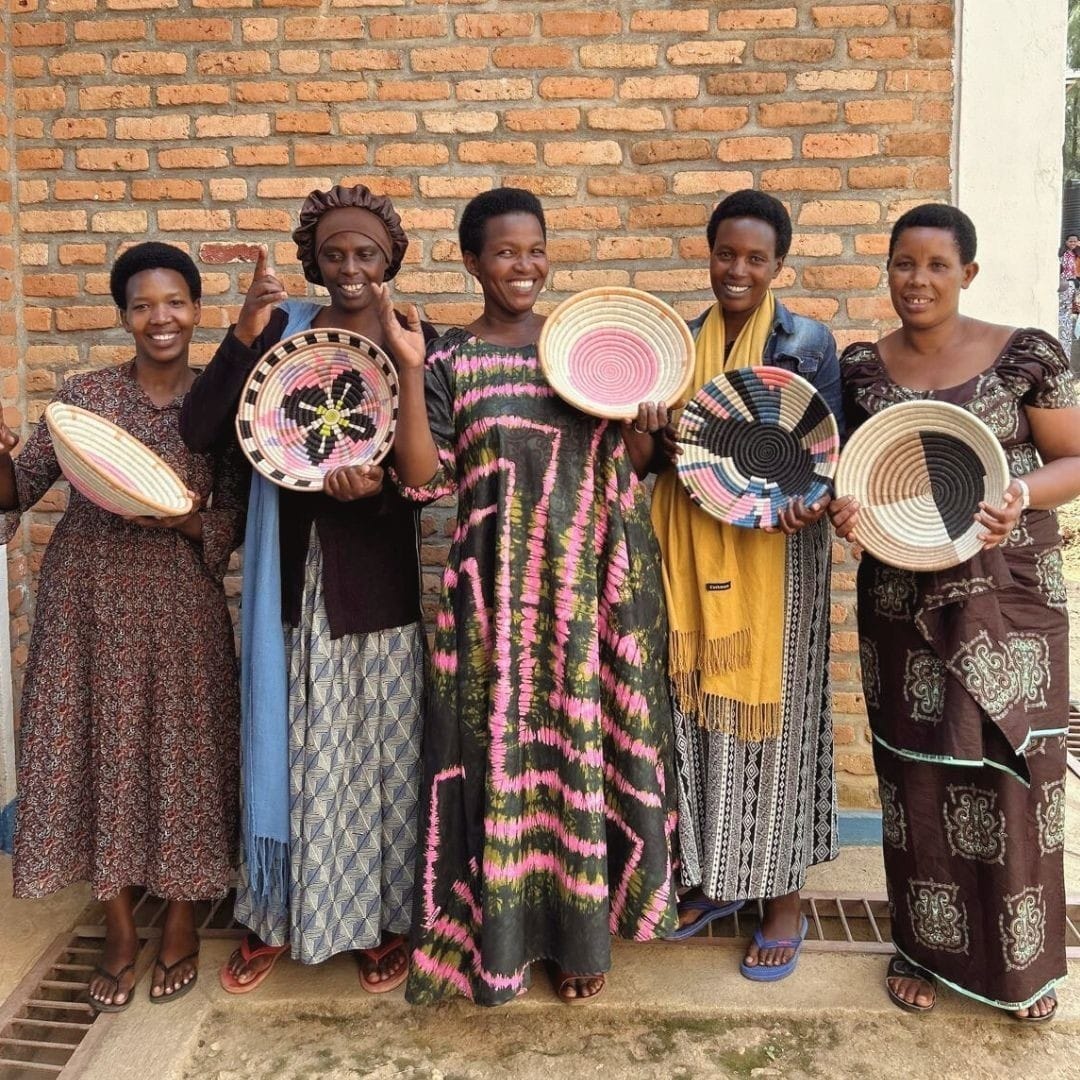
Since 2007, Indego Africa has partnered with over 1,200 women across 23+ independent, artisan-owned cooperatives in Rwanda, Ghana, and refugee camps to create stunning handwoven baskets and home décor. But they're not just buying products, they're building entrepreneurs.
According to Indego Africa's Annual & Social Impact Report, in 2023, 90% of their artisan partners reported increased income, 97% said their quality of life improved, and 40% in Rwanda started side businesses using skills from Indego Africa programs. They provide business training, vocational skills, workshops on health and wellness, and their Economic Inclusion for Refugees program has been equipping Burundian and Congolese refugees since 2016.
Lemlem
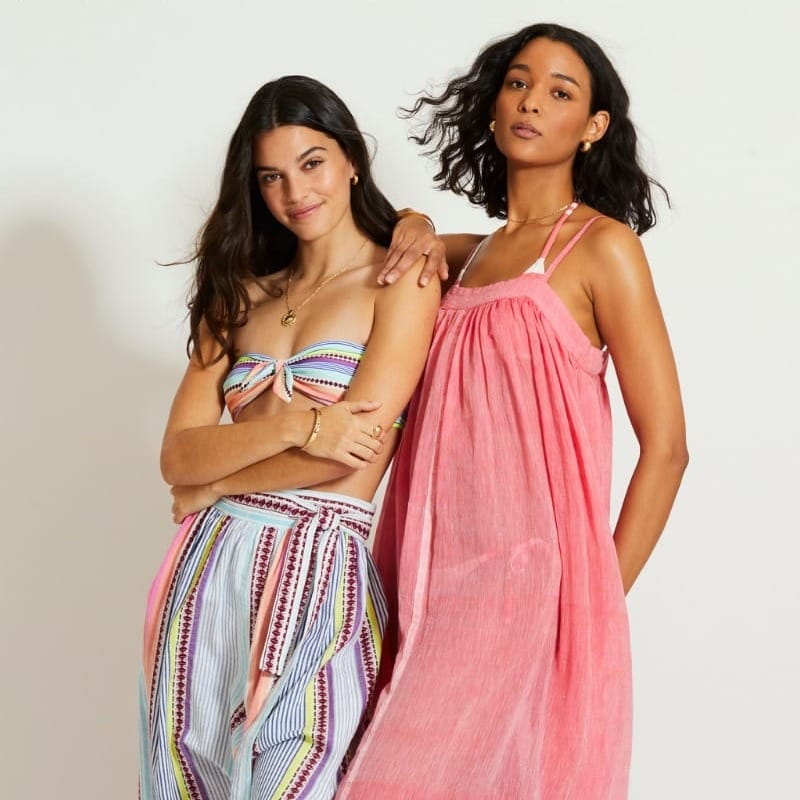
Supermodel Liya Kebede founded lemlem in 2007 after meeting traditional Ethiopian weavers who no longer had a market for their craft. The brand creates artisan-driven resort wear using traditional hand-weaving techniques, and has multiplied its workforce five times since inception with wages increasing by a similar magnitude. They work with women-run studios in Ethiopia, Kenya, and Morocco. Lemlem Foundation reports that since 2017, 135 women have graduated from artisan skills trainings, and 80% are employed in sewing and tailoring roles.

The lemlem Foundation opened a maternity centre in Hawassa in 2011 and runs a Stitching Academy in Kenya that has trained over 300 students; two-thirds of whom get employed. Students learn industrial sewing, quality control, but also financial literacy and basic business skills. With each purchase, 5% of proceeds go to the Foundation. In Ethiopia, where only 35% of university undergraduates are female and 80% of the population lives in rural areas, lemlem is creating dignified, well-paid alternatives while preserving centuries-old craft.
Ubuntu Life
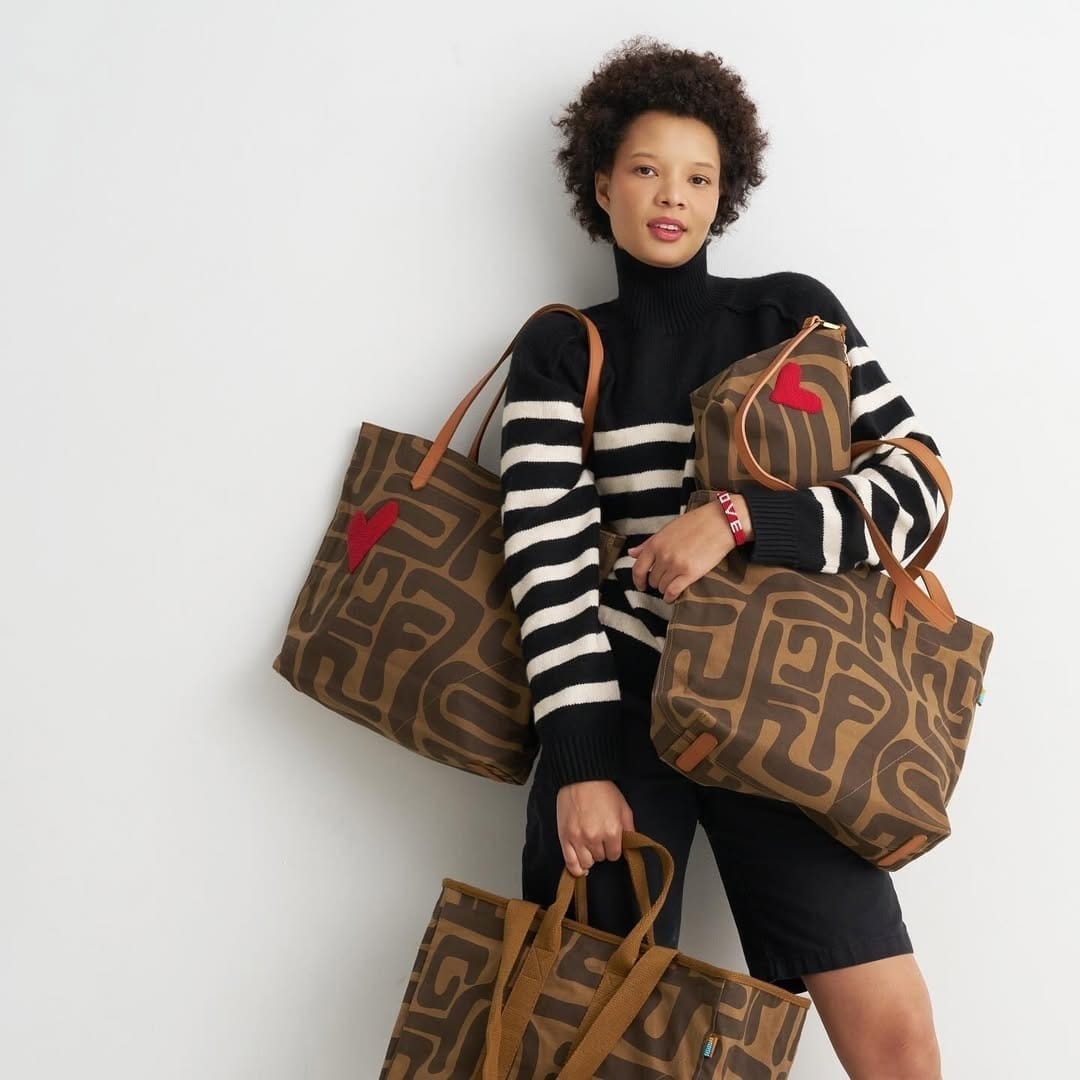
Ubuntu Life is a Kenyan lifestyle brand that makes gorgeous handmade leather goods and accessories, but the real story started with nine mothers of children with special needs in Maai Mahiu who couldn't work because caring for their kids was literally a full-time job. To help with this, co-founders Zane Wilemon and Jeremiah Kuria created a special needs center providing therapy and education to over 350 children called the Ubuntu Foundation.

Today, Ubuntu Life employs close to 150 full-time makers in Maai Mahiu and works with 800+ Maasai women in Kenya's Ngong Hills. Through this kind of holistic empowerment; caring for the kids, employing the moms, paying fair wages, and building community, Ubuntu Life proved that profit and purpose aren't enemies; they can be partners too.
Studio One Eighty Nine

Co-founded by actress Rosario Dawson and Abrima Erwiah, Studio One Eighty Nine, an artisan-produced fashion brand, started after they traveled through Kenya, Burundi, Rwanda, and Congo in 2011 with V-Day (the movement to end violence against women). They launched their first collection on February 14, 2013, in honour of V-Day's One Billion Rising campaign.
They source all materials from local Nigerian and Ghanaian fabric makers, provide training, and partner with schools and universities in Ghana and Zambia to design uniforms and create sustainability training schemes. They've collaborated with J.Crew, Aqua, Lexus, and Warby Parker, won the CFDA Lexus Fashion Initiative for Sustainability, and received the Martin Luther King Junior Award on Social Justice from UPenn in 2015. Studio One Eighty Nine is proving that African production can compete at the highest levels and that traditional techniques like hand-batik and indigo dyeing deserve to be compensated as the sophisticated art forms they are.
SOKO Kenya
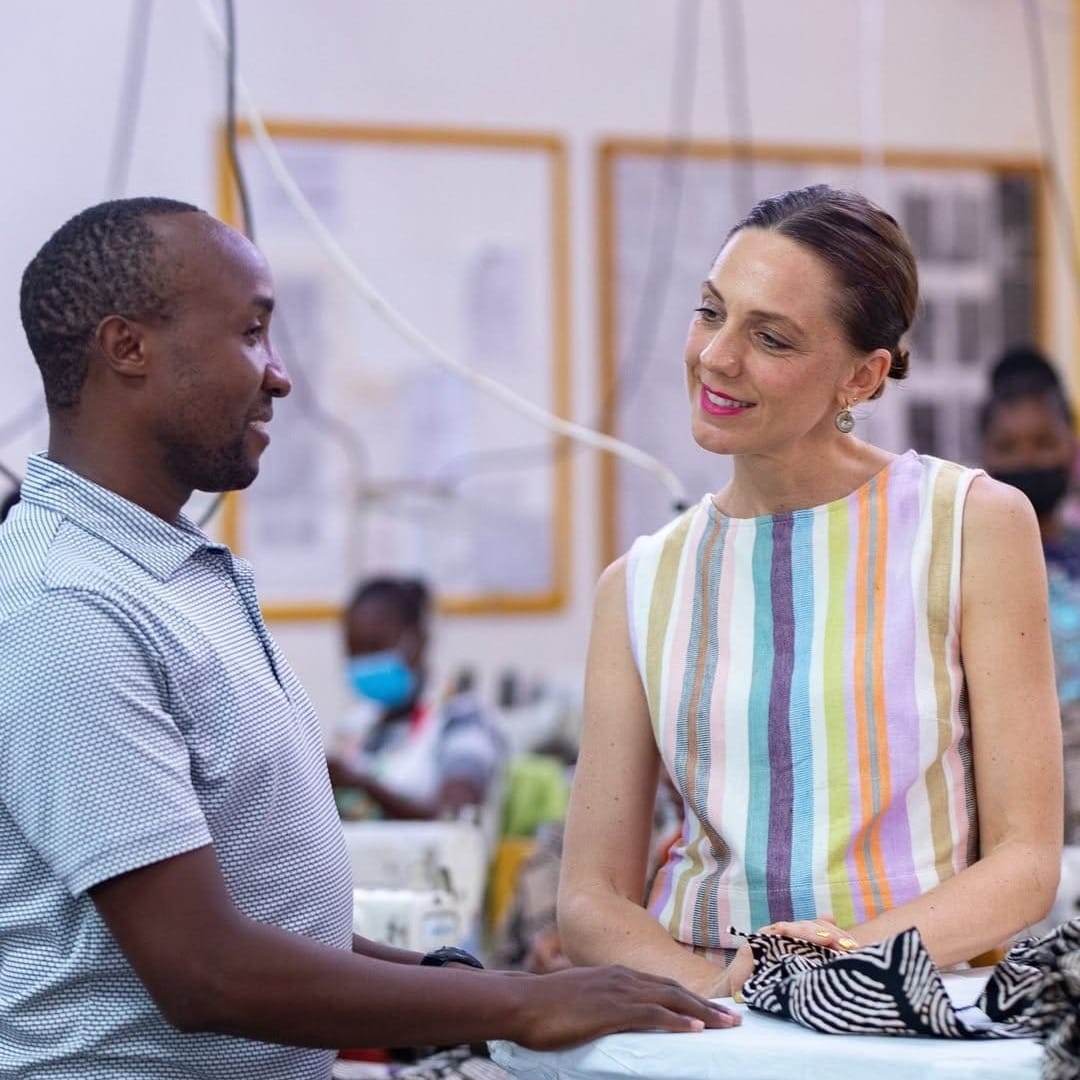
SOKO Kenya is an ethical clothing manufacturer in Kikambala, Kilifi, founded by Joanna Maiden. They're a sustainable factory providing living wage jobs while partnering with global fashion brands like Wales Bonner, Hayley Menzies, and ASOS. Through their charity, The Kujuwa Initiative, they train and support young people, families and educators in sexual reproductive health, rights and menstrual hygiene management.

Kujuwa helps girls access sanitary pads by producing and donating washable sanitary pads by up-cycling fabric waste from their SOKO Kenya clothing factory. They also divert fabric waste from landfills each year, turning it into reusable sanitary pads that provide up to three years of safe period protection.
Kujuwa has engaged and educated a large network of people, shared thousands of sanitary pads with those who need them most, and created meaningful livelihood support for many within the communities they serve. They employ people trained through the SOKO Kenya Stitching Academy to produce the pads, providing the opportunity to earn a living wage and improve their quality of life.
Oh-Lief
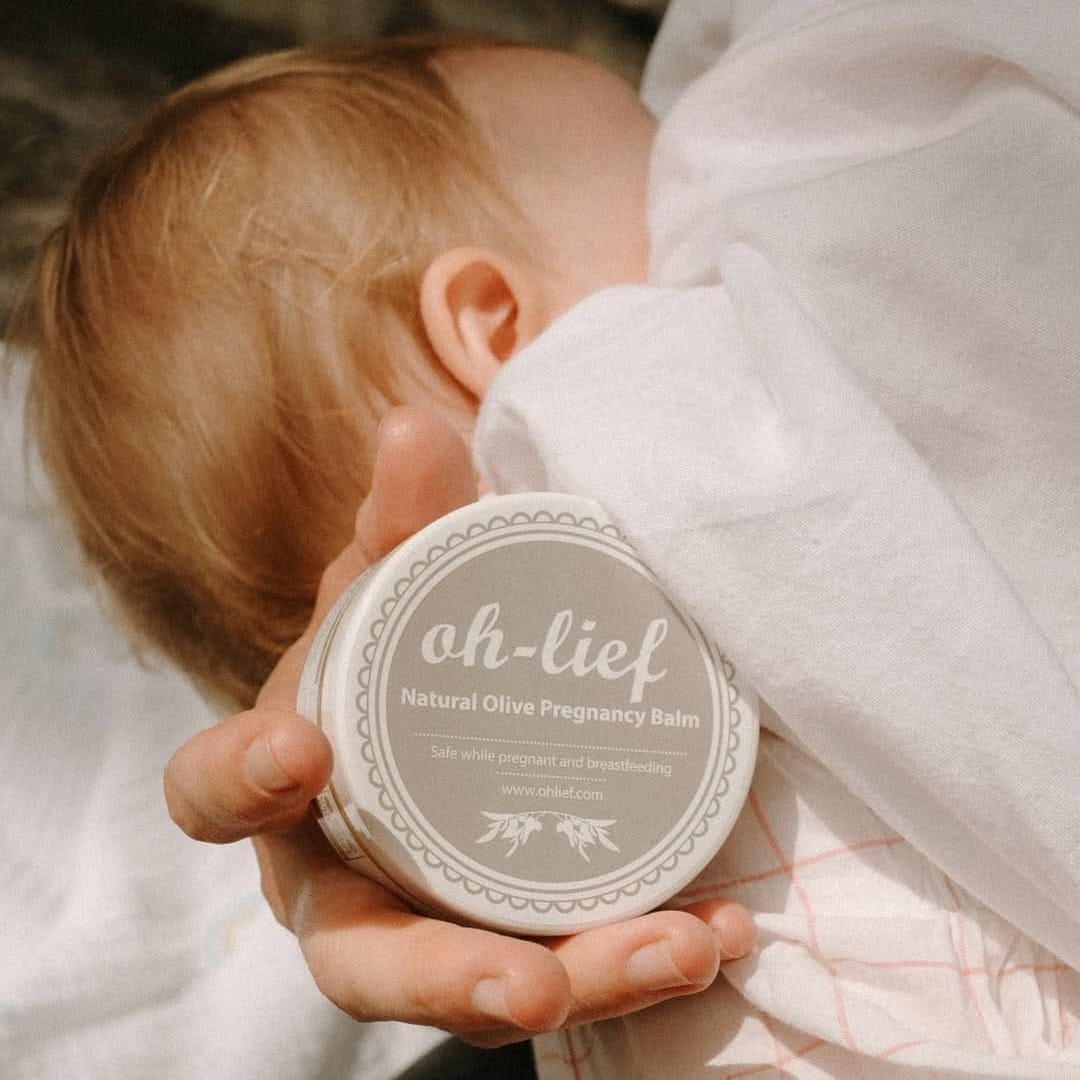
This family business creates gentle, natural baby skincare products using 100% natural, raw, and organic ingredients. Since 2015, Oh-Lief has partnered with Greenpop to plant indigenous trees every single month. When you buy their Baby Gift Box, you get a certificate for your baby with GPS coordinates of a tree planted on their behalf, connecting new life with environmental restoration and teaching parents from day one that we have a responsibility to care for the earth.
They also educate families about natural ingredients, support South African suppliers, and actively work to offset carbon footprints. Every tree that their customers' babies is their legacy. In a world where baby products are often filled with questionable chemicals and produced with zero regard for environmental impact, Oh-Lief is proving there's a better way, and making it accessible for regular South African families who care.
Orange Culture
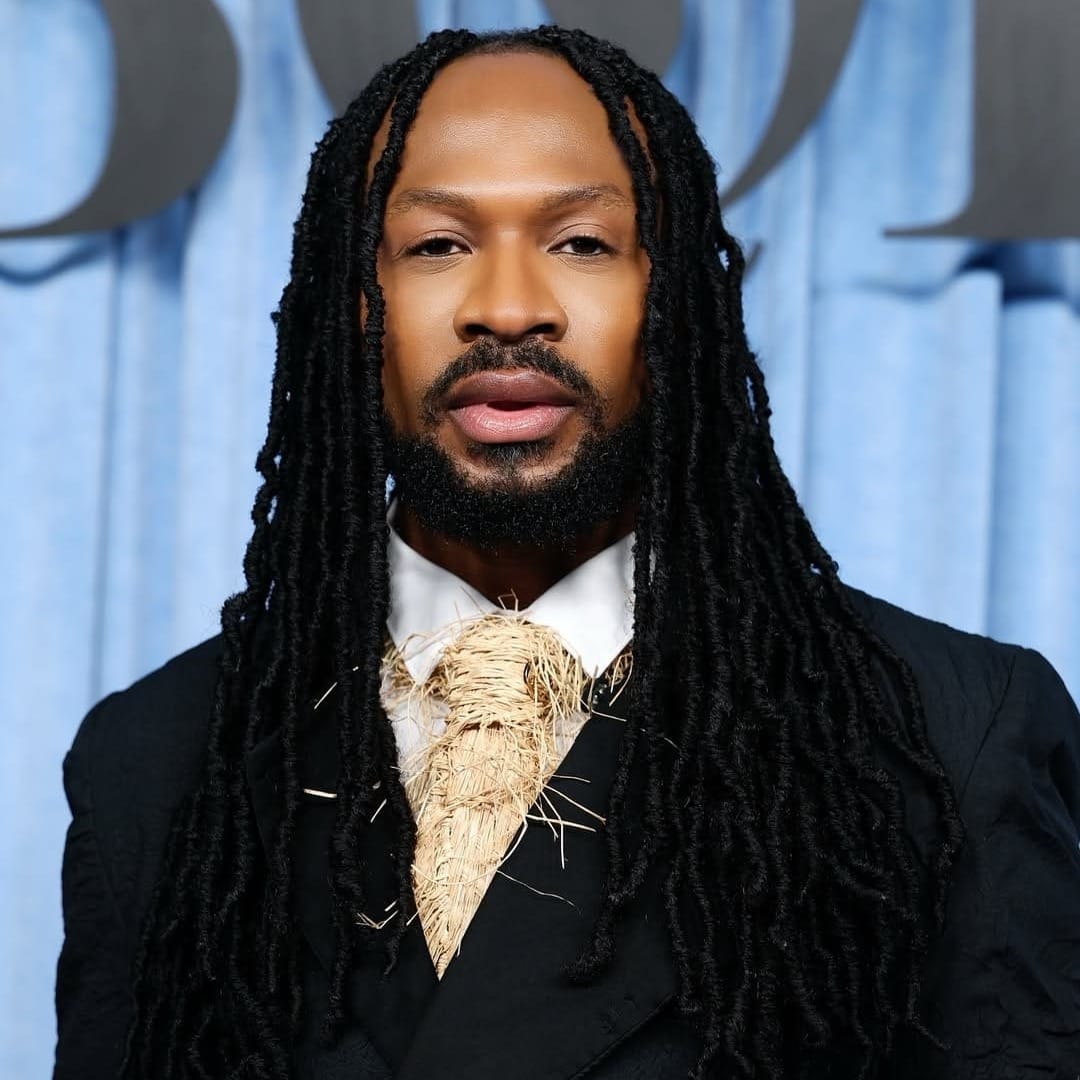
Founded by Adebayo Oke-Lawal in 2011, Orange Culture is a Lagos-based fashion brand that challenges traditional notions of gendered fashion, creating androgynous pieces that challenge the ideas of how masculine dressing is perceived in the society. Oke-Lawal started the brand but didn't stop at making beautiful clothes. He established The Orange Mentorship, a platform providing knowledge exchange sessions from industry practitioners to help aspiring designers across the continent and beyond.
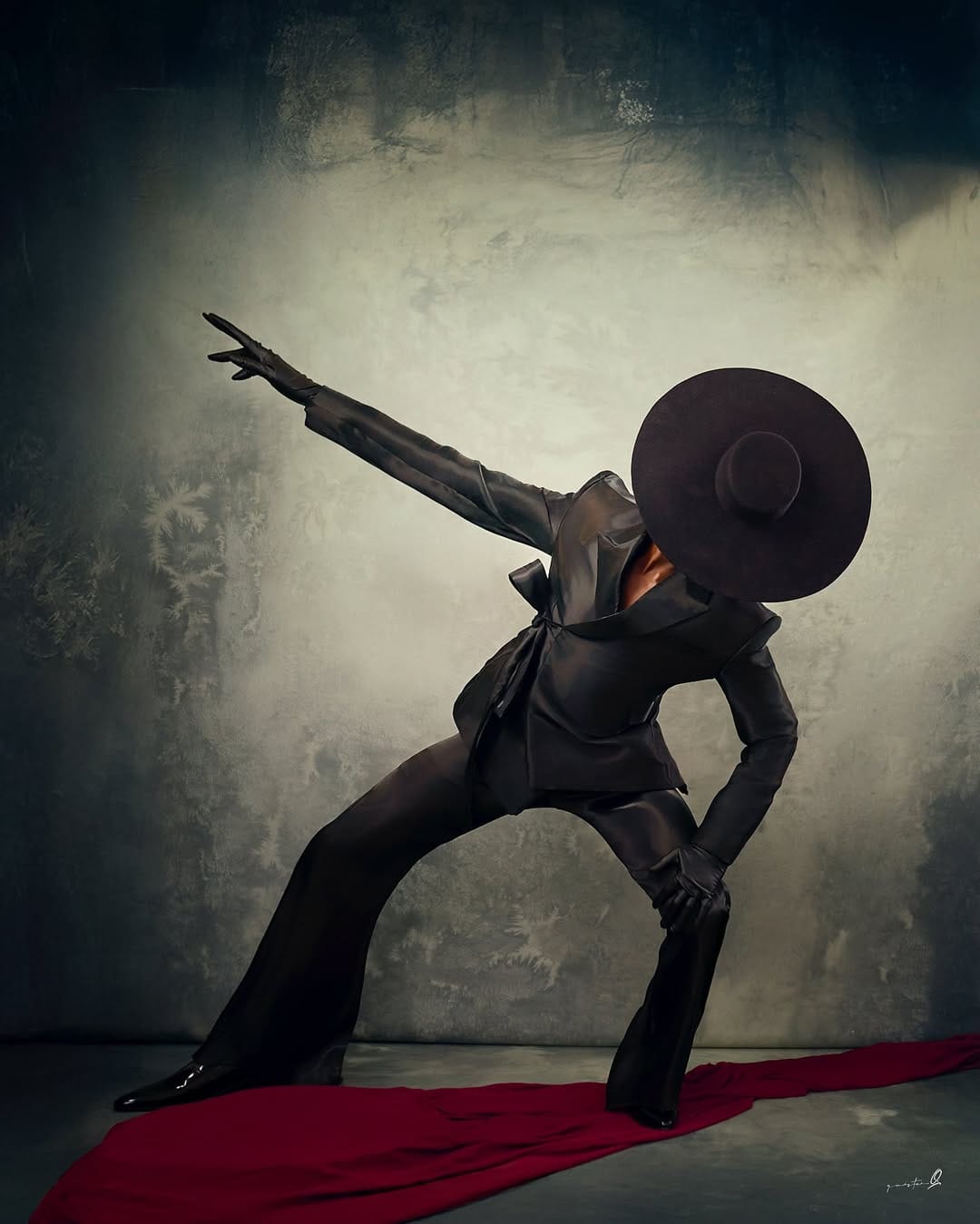
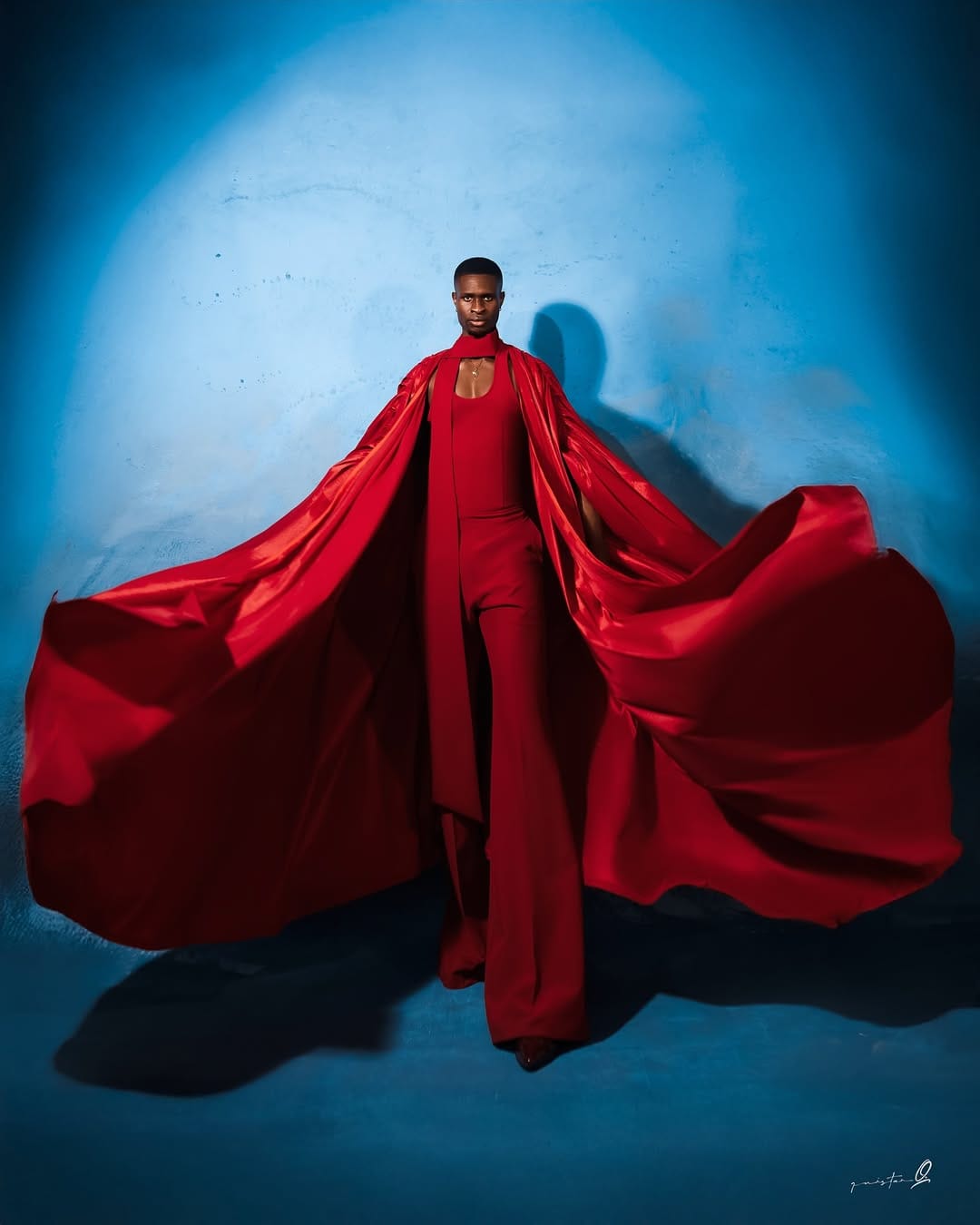
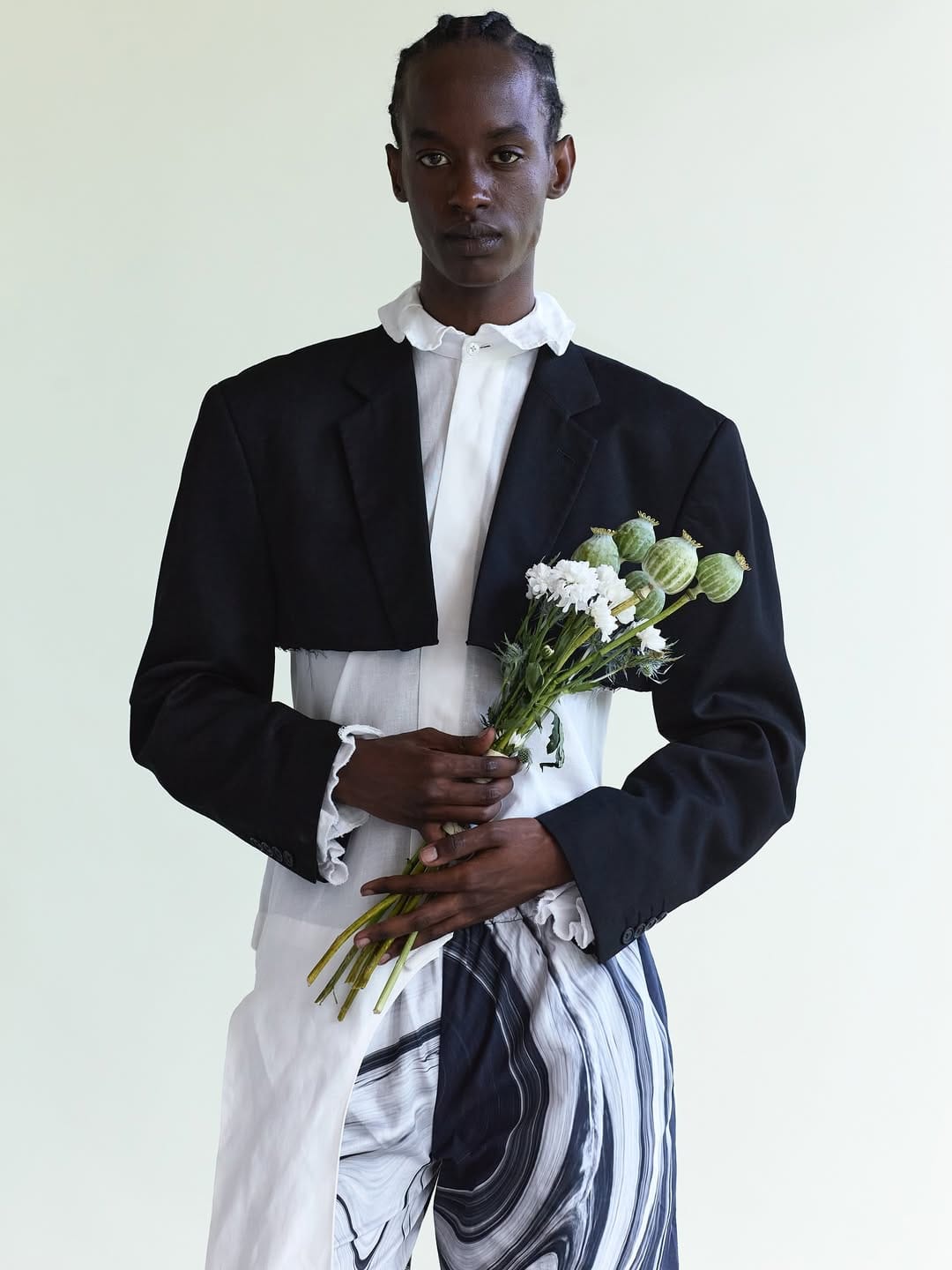
Orange Mentorship also runs a project called "Painting Your Dreams" that inspires young people through art. All Orange Culture pieces are manufactured in Lagos from ethically-sourced fabrics from local Nigerian makers, with staff going through rigorous training and skill acquisition opportunities.
In Nigeria's hyper-masculine culture, Oke-Lawal is using fashion to say vulnerability and expression are strength, not weakness, and his free mentorship is ensuring young Nigerian designers don't have to figure everything out alone.
Hanifa
Founded by Congolese-American designer Anifa Mvuemba in 2012, Hanifa is a D.C.-based contemporary brand known for edgy, feminine, size-inclusive clothing.
In 2020, Mvuemba made history as the first brand to livestream a virtual runway show on Instagram using 3D models, and her Pink Label Congo collection with invisible models floating down the runway broke the internet. But what really matters is Concepts by Anifa Mvuemba (CBYAM), a mentoring program she started in 2020 for emerging designers.
Mvuemba is proving that "luxury" doesn't require a European pedigree, that you can be size-inclusive and high-end, and that African designers don't need validation from fashion houses to create innovative work.
Ewami Essentials

Founded by Oyindamola Bernard, Ewami Essentials creates natural and organic skincare from locally-sourced African ingredients like shea butter, African black soap, and botanical oils. But Bernard is also building an ecosystem, working with local women and artisans in Ogun State (her hometown), buying raw materials from them, training them to make products, then purchasing the finished products, creating multiple income touchpoints.
Their sustainability approach includes planting five trees monthly through environmental organizations, partnering with Global Shea Alliance in Ghana, and the EwamiEarth program that rewards customers who return product bottles with discounts.
Conclusion
None of these brands treat community impact as an afterthought or marketing angle. It's woven into their DNA from day one. They're creating dignified employment that pays fair wages, preserving traditional knowledge, educating the next generation, and proving you don't have to choose between profit and purpose.
They understand something fundamental: sustainable impact isn't about charity. It's about respect. It's about recognising that traditional artisans possess valuable skills worth fair compensation, women deserve pathways to entrepreneurship and that communities thrive when businesses invest in the motherland.

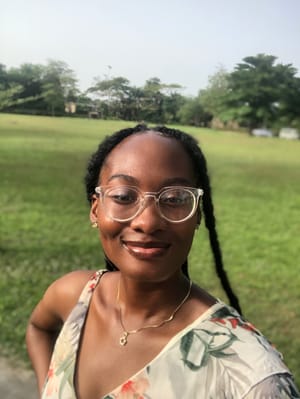
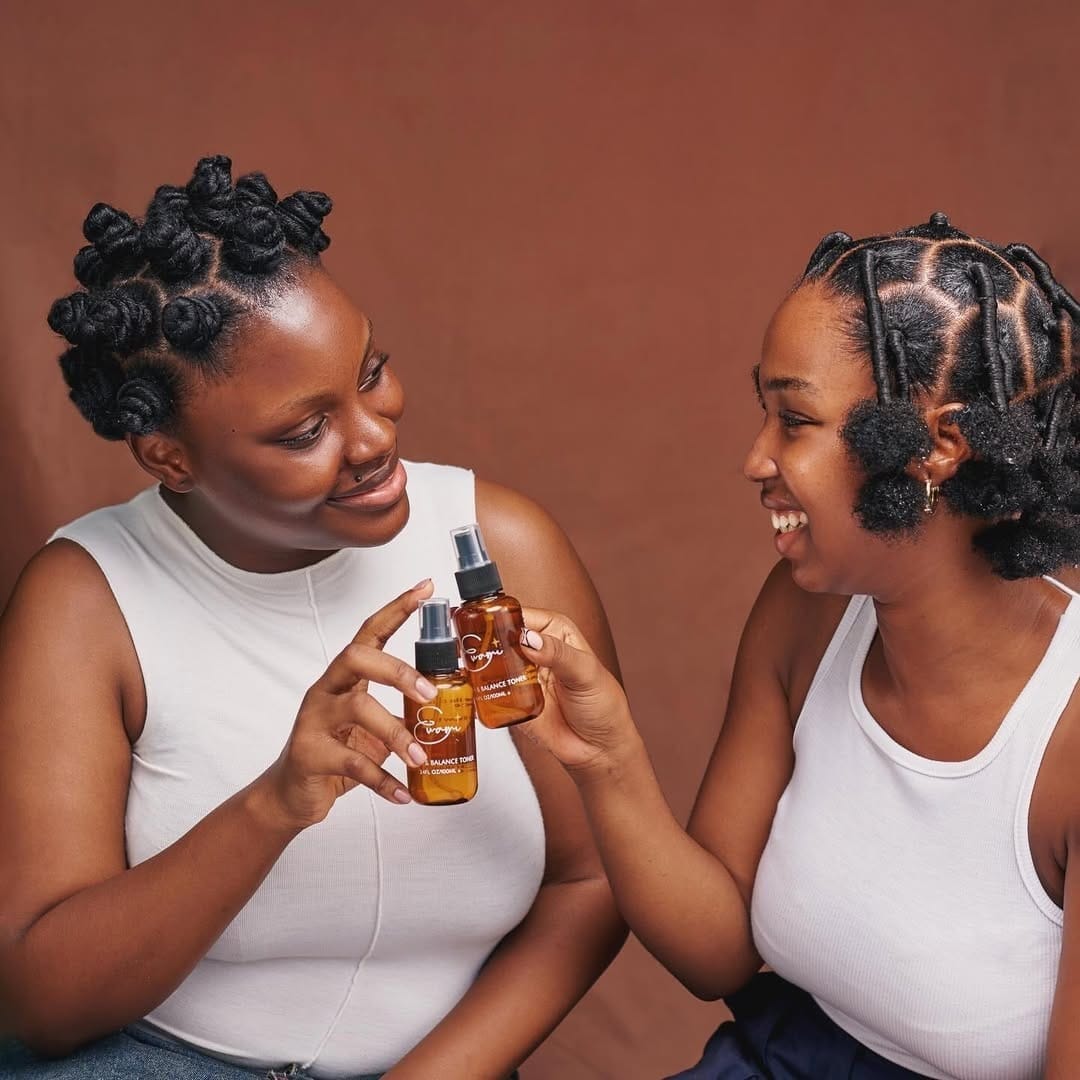
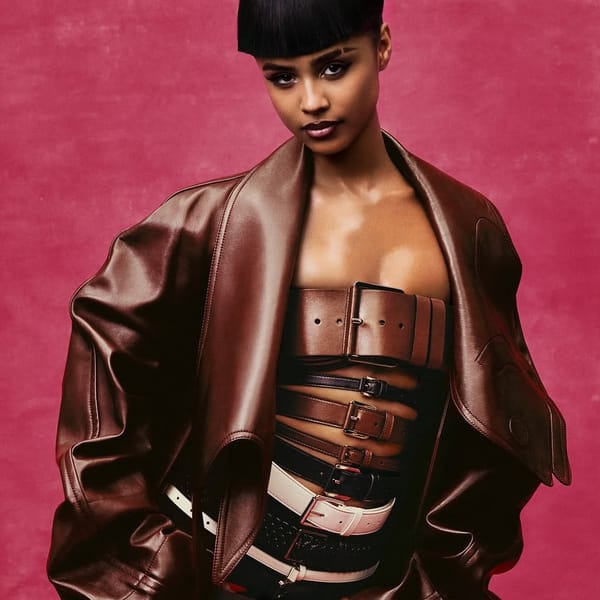
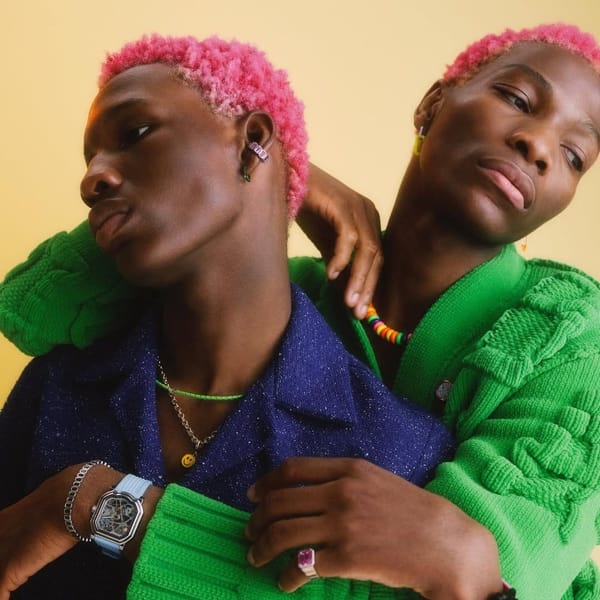
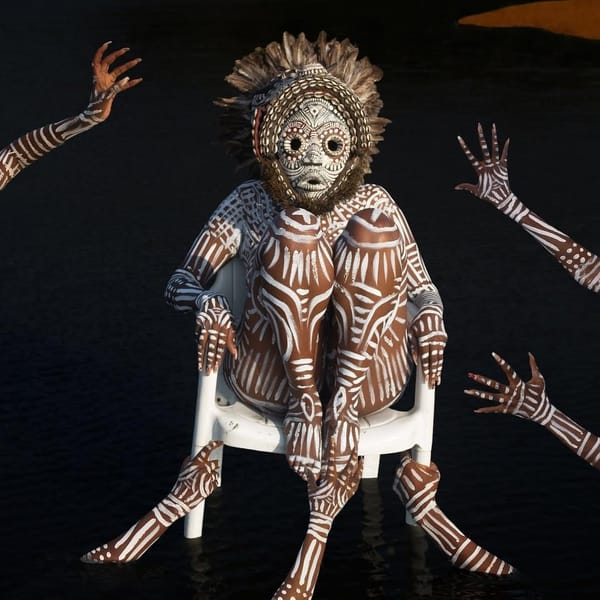
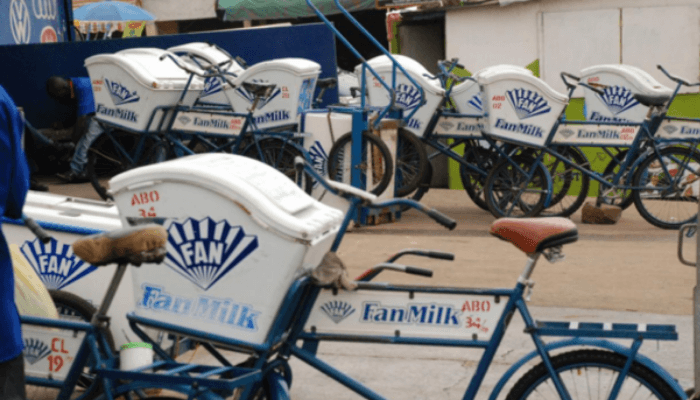
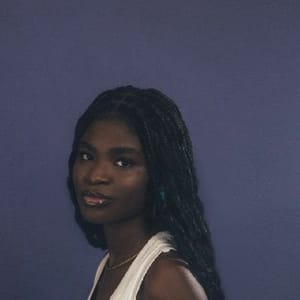
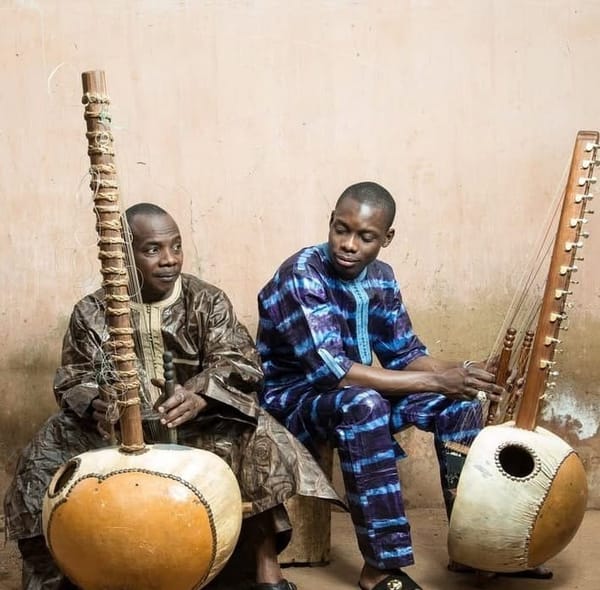
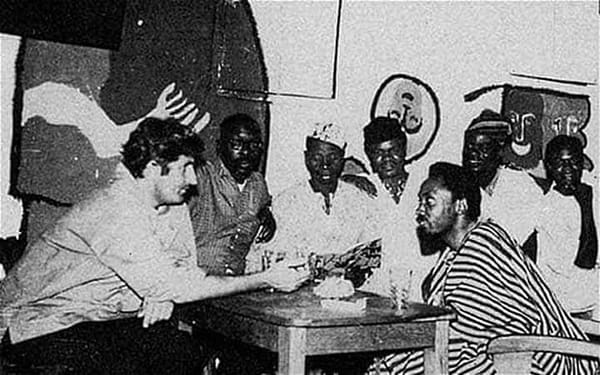
Member discussion